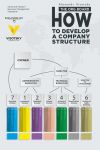
Автор книги: Нина Пусенкова
Жанр: Иностранные языки, Наука и Образование
сообщить о неприемлемом содержимом
Текущая страница: 12 (всего у книги 44 страниц) [доступный отрывок для чтения: 14 страниц]
Lesson 13
Conflict between Managers and Shareholders
Read and translate the text and learn terms from the Essential Vocabulary.
Agency Problem
Role of Shareholders and Role of Managers
Although ordinary shareholders are the owners of the company to whom the board of directors are accountable, the actual powers of shareholders tend to be restricted. They have no right to inspect the books of account, and their forecasts of future prospects are gleaned from the annual report and accounts, stockbrokers, journals and newspapers.
The day-to-day running of a company is the responsibility of the directors and other managers to whom they delegate, not the shareholders. For these reasons, there is potential for conflicts of interest between managers and shareholders.
Shareholders used to take a passive role in the affairs of the company. It was once common to play down their influence. This has changed partly because of a change in the type of shareholder, partly due to takeover activity and partly because of social pressures. Shareholding has changed from private investors to institutional investors, who are able to employ experts to advise on the investment strategy. The company must accordingly be run in a way that guarantees the satisfaction of an increasingly sophisticated shareholder, who will both be competent and keen to assess for himself the truth behind any optimistic statements.
The power that the institutional shareholders have over a company rests on the effect that their investment decisions can have on the share price of a company, on the fact that at times of takeover bid the decision of a few shareholders can have a major influence on whether the bid succeeds or fail, and on the fact that the institutions have large amount of funds that can be made available to a company. The institutions need the companies, as they need good investment opportunities in a healthy economic climate, in order to be able to meet their future pension and assurance obligations.
Agency Theory and Agency Problems
The relationship between management and shareholders is referred to as an agency relationship, in which managers act as agents for the shareholders, using delegated powers to run the affairs of the company in the best interest of the shareholders.
Agency problem is a potential conflict of interest between the agent (manager) and the outside shareholders and the creditors. For example, if managers hold none or very little shares of the company they work for, what is to stop them from working inefficiently, not bothering to look for profitable new investments, or giving themselves high salary or perks?
Agency theory proposes that, although the individual members of the business team act in their own self interest, the well being of each individual depends on the well being of other team members and on the performance of the team in competition with other teams.
One power that shareholders possess is the right to remove the directors from office but shareholders have to take initiative to do this, and in many companies the shareholders lack energy and organization to take such a step. Even so, directors will want the company’s report and accounts, and the proposed final dividend, to meet with the shareholders’ approval at annual general meeting.
Another source of conflict between managers and shareholders is that they have different attitude towards risk. A shareholder can spread his risk by investing his money in a number of companies. A manager’s financial security usually depends on what happens to the one company that employs him. The manager could therefore be more risk averse than the shareholder and not eager to invest in risky projects.
Another situation in which conflicts can arise is when a company is subject to takeover bid. The shareholders of the acquired firm very often receive above normal gains for the share price while managers lose their jobs; if lucky they may be picked by the new shareholders. Therefore, it is not always in the shareholders’ interest that the sought-after companies put up such a defense to drive the bidder away.
Goal Congruence
Goal congruence is the accord between the objectives of agents acting within an organization and the objectives of the organization as a whole. Managers can be encouraged to act in shareholders’ best interests through incentives which reward them for good performance but punish them for poor performance:
Profit related pay. If managers are rewarded according to the level of profit they will strive to achieve high profit levels. Shareholders’ wealth is going to increase, so too is the value of the firm. Sometimes such act might just encourage creative accounting whereby management will distort the reported performance of the company in the service of the managers’ own ends.
Rewarding managers with shares. This might be done when a company goes public and managers are invited to subscribe for shares in the company at an attractive offer price. Managers will have a stake in the business and will venture only into those projects that enhance the share value of the business.
Direct intervention by shareholders. The pattern of shareholding has changed from passive private investors to aggressive intuitional investors. These shareholders have direct influence over the performance of an enterprise. They actively check the performance of the company and are quick to lobby other small shareholders when they suspect poor service or any malpractice by the directors.
Threat of firing. Shareholders can take a direct approach by threatening the managers with dismissal if they put their personal interest above maximization of the firm’s value. Institutional investors enhanced the shareholders powers to dismiss directors as they are able to lobby other shareholders in decision making.
Threats of takeover. Managers would do everything possible to frustrate takeovers as they are aware that they can lose their jobs. To promote goal congruence the shareholders may threaten to accept takeover bid if managers do not meet their set targets.
Source: http//cbdd.wsu.edu
Conflict Between Managers and Shareholders
In the catechism of capitalism, shares represent the part-ownership of an economic enterprise. The value of shares is determined by the replacement value of the assets of the firm, including intangibles such as goodwill. The price of the share is determined by transactions among arm’s length buyers and sellers in an efficient and liquid market. The price reflects expectations regarding the future value of the firm and the stock’s future stream of income – i.e., dividends.
Alas, none of these oft-recited dogmas bears any resemblance to reality. Shares rarely represent ownership. The free float is frequently marginal. Shareholders meet once a year to vent their displeasure and disperse. BoDs are appointed by management – as are auditors. Shareholders are not represented in any decision making process.
The truth is that shares represent the expectation to find future buyers at a higher price and thus incur capital gains. In the stock exchange, this expectation is proportional to liquidity and volatility. Thus, the price of any given stock reflects the consensus as to how easy it would be to offload one’s holdings and at what price.
Another myth has to do with the role of managers. They are supposed to generate higher returns to shareholders by increasing the value of the firm’s assets and, therefore, of the firm. If they fail to do so, goes the moral tale, they are booted out mercilessly. This is one manifestation of the «Principal-Agent Problem». It is defined thus by the Oxford Dictionary of Economics: «The problem of how a person A can motivate person B to act for A’s benefit rather than following (his) self-interest.»
The obvious answer is that A can never motivate B not to follow B’s self-interest – never mind what the incentives are. That economists pretend otherwise just serves to demonstrate how divorced economics is from human psychology and from reality.
Managers will always rob blind the companies they run. They will always manipulate boards to collude in their shenanigans. They will always bribe auditors to bend the rules. In other words, they will always act in their self-interest. In their defense, they can say that the damage from such actions to each shareholder is minuscule while the benefits to the manager are enormous.
But why do shareholders cooperate with such corporate robbery? Shareholders and managers are allied against the firm – not pitted against each other. The paramount interest of both shareholders and managers is to increase the value of the stock – regardless of the true value of the firm. Both are concerned with the performance of the share – rather than the performance of the firm. Both are preoccupied with boosting the share’s price – rather than the company’s business.
Hence the inflationary executive pay packets. Shareholders hire stock manipulators – euphemistically known as «managers» – to generate expectations regarding the future prices of their shares. The corporate executives are allowed by shareholders to loot the company providing they generate consistent capital gains to their masters by provoking persistent interest and excitement around the business.
The Principal-Agent Problem arises in other social interactions and is equally misunderstood there. Consider taxpayers and their government. Contrary to conservative lore, the former want the government to tax them providing they share in the spoils. They tolerate corruption in high places, cronyism, nepotism, inaptitude and worse – on condition that the government and the legislature redistribute the wealth they confiscate. Such redistribution often comes in the form of pork barrel projects and benefits to the middle class.
This is why the tax burden and the government’s share of GDP have been soaring inexorably with the consent of the citizens. People adore government spending precisely because it is inefficient and distorts the proper allocation of economic resources. Most people are rent-seekers. Witness the mass demonstrations that erupt whenever governments try to slash expenditures, privatize, and eliminate their gaping deficits. This is one reason the IMF with its austerity measures is universally unpopular.
Employers and employees, producers and consumers – these are all instances of the Principal-Agent Problem. Economists would do well to discard their models and go back to basics. They could start by asking:
– Why do shareholders acquiesce with executive malfeasance as long as share prices are rising?
– Why do citizens protest against a smaller government – even if it means lower taxes?
– Could it mean that the interests of shareholders and managers are identical? Does it imply that people prefer tax-and-spend governments and pork barrel politics to the Thatcherite alternative?
Nothing happens by accident or by coercion. Shareholders aided and abetted the current crop of corporate executives enthusiastically. They knew well what was happening. They may not have been aware of the exact nature and extent of the rot – but they witnessed approvingly the public relations antics, insider trading, share price manipulation, opaque transactions, and outlandish pay packages. Investors remained mum throughout the corruption of corporate America. It is time for the hangover.
Source: Sam Vaknin, published: 2005-01-18, www.bebpronews.com
Essential Vocabulary
1. ordinary shareholder – акционер, владеющий обыкновенными акциями компании
2. books of account – бухгалтерские книги компании
3. day-to-day а – повседневный
4. running n – зд. работа компании, управление компанией
run v – управлять компанией
5. takeover n – поглощение
take over v – поглощать
6. assurance obligations – страховые обязательства
7. agency n – агентство; агент; юридические отношения между принципалом и агентом; агентские услуги; (мн.) ценные бумаги государственных ведомств
agent n – агент, посредник
8. outsider n – аутсайдер
outside a – внешний
9. perk n – привилегия, льгота, скидка
10. annual general meeting (AGM) – ежегодное общее собрание акционеров
11. risk averse a – не расположенный к риску
12.shareholders’ wealth – богатство акционеров
13. public company – публичная компания
14. subscription n – подписка
subscribe v – подписаться
15. offer price – цена продавца
16. stake n – участие в капитале; ставка, заклад
17. venture n – коммерческое предприятие; рискованное начинание
venture v – рисковать, отважиться, решиться
venture a – венчурный, рискованный
18. malpractice n – противозаконное действие, злоупотребление доверием; преступная небрежность
19. replacement value – цена замещения
20. arm’s length – «на расстоянии вытянутой руки» (напр. сделка, проводимая так, что между сторонами нет юридических или финансовых связей во избежание конфликта интересов)
21. free float – число акций в свободном обращении на рынке
22. capital gains – приращение капитала
23. stock exchange – фондовая биржа
24. volatility n – волатильность, переменчивость, неустойчивость
volatile a – волатильный, переменчивый, неустойчивый
25. principal n – номинальная или основная сумма кредита, займа или депозита; принципал, партнер фирмы
26. collusion n – тайный сговор
collude v – вступать в сговор
27. bribe n – взятка
bribe v – давать взятку
28. pay packet – заработок, фонд заработной платы
29. tax burden – налоговое бремя
30. Gross Domestic Product (GDP) – валовой внутренний продукт (ВВП)
31. International Monetary Fund (IMF) – Международный валютный фонд (МВФ)
32. malfeasance n – неправомерное действие, должностное преступление
33. coercion n – принуждение, сдерживание силой, физическое давление
coerce v – удерживать, заставлять, принуждать; добиться путем принуждения
coercive a – принудительный
34. insider trading – внутренняя (инсайдерская) торговля
Exercise 1. Answer the following questions.
1. Who is responsible for the day-to-day running of the company? 2. Why did shareholders play a passive role in the affairs of their company in the past? 3. How has shareholding changed recently? 4. How can institutional shareholders influence the affairs of a company? 5. What is the essence of the agency problem? 6. What does the agency theory state? 7. Why might managers do their best to improve the financial performance of their company? 8. Why is the difference in risk attitudes of managers and shareholders? 9. What are the potential sources of conflicts between managers and shareholders? 10. What types of incentives might encourage managers to act in shareholders’ best interests? 11. Why is it believed that managers will always steal from the company they run? 12. Why do shareholders cooperate with corporate robbery? 13. What is the paramount interest of both shareholders and managers? 14. In what way does the Principal-Agent Problem arise in other social interactions? 15. Do you agree with the macroeconomic views of Sam Vaknin, the author of the second text?
Exercise 2*. Find terms in the text that match definitions given below and make sentences of your using these terms.
1. to assume control or ownership; to seize by force or craft
2. one who is not connected with or admitted to a particular association, set or group
3. an undertaking of chance, danger, or hazard, esp. a commercial speculation
4. an association of brokers or dealers in stocks and bonds who trade securities among themselves
5. fickle, apt to change, lively
6. secret agreement for a deceitful or fraudulent purposes, esp. between persons pretending to be adversaries or competitors
7. to induce to a certain course of action, esp. to a wrong course, by the gift or offer of something valued
8. changed from the natural character or original simplicity
Exercise 3. Analyze the potential for conflict between managers and shareholders in Russian companies. Describe a corporate conflict that has happened in Russia.
Exercise 4*. Fill in the blanks using terms given below.
The Boss on the Sidelines
How Auditors, Directors and Lawyers Are Asserting their Power
If anybody needed proof that the…… in Corporate America has……… Maurice R. Greenberg…….. it on March 13. While the imperious chairman and CEO of American International Group Inc. was aboard his yacht on the Florida coast, his company’s……. directors faced an urgent crisis: a growing……. that seemed to lead straight to the CEO. As directors debated whether to cut Greenberg loose, the 79-year-old titan lashed out at them by telephone: «This board is being….. by a bunch of lawyers who can’t spell the word ‘insurance’! If you get rid of me, you will……. this company!» It was the kind of intimidation that had helped Greenberg….. unprecedented power in his four decades at the…….. of the insurer. But this time, the bullying didn’t work. Within a day, Greenberg, once the most powerful man in the industry, was out as CEO.
Greenberg failed to…… the first rule of this new era: that directors, auditors, and….. are more powerful than ever. That shift has fundamentally altered…….. between CEOs and the advisers. At their best, these supposed guardians of……, chosen for their ability to complement the CEO and provide specific areas of……., were trusted counselors. At their worst, they were little more than sycophants. Either way, these advisers – who were always supposed to work for the……… not the CEO – usually……… their power as watchdogs only in moments of genuine crisis. But now the chumminess has given way to a more adversarial…… This new……. has helped to get rid of Boeing CEO Harry C. Stonecipher, Walt Disney CEO Michael D. Eisner, and Hewlett-Packard CEO Carleton S. Fiorina, among others.
The watchdogs are finally facing genuine…….. for their……. The Big Five in the accounting world became the Big Four after prosecutors……. put Arthur Andersen out of business for its role in the Enron scandal. Meanwhile, directors at the……. Houston energy giant and WorldCom are paying off fraud……. from their own pockets.
The result of all this is a climate of fear. Directors….. and lawyers are worried, first and foremost, about protecting their hides. The old attitude of informal…… with the CEO has been replaced by a new spirit of legalistic formality. When red flags arise, directors are quicker than ever to hire…… attorneys to…… potential wrongdoing.
That often leads to an elaborate game of shift the……. The….. of the moment is: «Put it in writing.» Some auditors are afraid even to talk to CEOs and CFOs about the appropriate accounting……… for complex………
The new…….. is making everything about running a company more difficult for CEOs. The watchdogs are playing a bigger role in……. management decisions about strategy, acquisitions, succession planning, crisis response, and what can be booked as earnings. «Life is going to be much tougher for the Imperial CEO,» says Robert S. Miller Jr., a…….. specialist. «It is what shareholders want.»
CEOs are now being managed with sticks. This is a fundamentally different…… philosophy than the one that prevailed during the bubble years, when bosses were primarily motivated with carrots – otherwise known as……. Both of these approaches were driven by the business crises: the…….. failure of corporate leaders in the 1980s, whose pay was not linked to………, and the greed of CEOs in the late ‘90s and early ‘00s, whose pay was linked to………
The new vigilance will almost certainly provide some clarity in corporate governance and cut down on…….. But as is often the case, the new rules may initially go too far and create their own distinctive…… of problems. Directors, auditors, and lawyers are going to get higher…… in the future. And the……. of their advice may well decline. Why? When really tough……. arise – involving risky……, aggressive……… or gray-area accounting – CEOs have always been able to turn to board members and professionals for advice. Now candid conversations are virtually taboo.
……… is an equally important danger. CEOs can soon become……… preferring to pursue strategies that are «safe» but ultimately unwise rather than risk confrontations with…… over bolder, but smarter, moves. Kenneth G. Langone, the Home Depot Inc. co-founder, warned of the danger that America would have «the best-governed, worst-managed» corporations in the world.
In a remarkably short period of time, Corporate America has moved from the age of the celebrity CEO to the age of the……. CEO. Chief executives are still in……, but their power is much more limited. The downsizing of the CEO has led, to a certain extent, to the supersizing of the……. That’s not necessarily a cure for everything that ails Corporate America. It is a clue that successful CEOs will have to be……. builders in the future. And it should be a warning to CEOs everywhere: The age of the absolute corporate monarch, such as AIG’s Greenberg, is over.
Source: Business Week (online), April 25, 2005 (excerpts)
Terms:
consensus, environment, micromanagement, liability, cooperation, treatment, turnaround, downsizing, exercised, helm, advisers, competitive, bankrupt, set, balance of power, mentality, performance, investigate, provided, regulators, fundamental, fees, stock options, independent, corporate governance, accounting scandal, run, destroy, consolidate, appreciate, relations, shareholder value, risk-averse, expertise, motto, shareholders, attitude, failures, effectively, claims, outside, blame, transactions, stock prices, abuses, quality, issues, deals, boards, charge, shifted, lawyers, auditors
Exercise 5. Translate into English.
Атакующий класс
Напомним схему классического корпоративного шантажа (greenmail). Атакующая структура покупает на открытом рынке некрупный пакет акций преуспевающей корпорации, после чего новоиспеченные акционеры начинают публично критиковать менеджмент компании. Помимо критики звучат и угрозы – например, обещания консолидировать более крупные пакеты акций и сменить руководство или заблокировать стратегические шаги компании. Конечной целью шантажиста является либо получение отступных за отказ от претензий, либо продажа своего пакета акций по завышенной цене. Практика greenmail на развитых рынках не слишком распространена: во-первых, западное деловое сообщество выработало систему защиты от «стервятников»; во-вторых, компания-агрессор немедленно попадает в черный список структур, вести с которыми бизнес опасно.
В России в 2000 году произошло несколько скандалов, которые были, по сути, адаптированными к российским условиям вариантами greenmail.
Встречайте нового акционера!
Стандартная версия русского корпоративного шантажа выглядит так. Некая структура приобретает на рынке крупный пакет акций компании с раздробленным уставным капиталом. Обычно речь идет о 15—25% акций «мишени». Затем новый акционер объявляет себя стратегическим партнером компании, одновременно предпринимая недружественные действия в отношении его менеджмента – от ареста ценных бумаг других акционеров под любым предлогом до организации проверок компании со стороны властных структур. Объявленная захватчиком цель – проведение внеочередного (extraordinary) собрания акционеров, на котором оппоненты агрессора будут максимально ослаблены. Когда старые акционеры поймут, что собрание может принять нежелательные для них решения, с ними можно начинать торг. Новый акционер объявляет сумму, за которую предприятию гарантировано спокойствие. Механизм передачи денег – выкуп акций по цене, в десятки раз превышающей рыночную.
Типичный пример российского корпоративного шантажа – конфликт вокруг АО «Уралхиммаш», крупнейшего в стране производителя химического оборудования. Не так давно предприниматель Павел Федулев приобрел околоконтрольный пакет акций компании. Дальнейшая борьба с оппонентами, также владеющими крупными пакетами акций «Уралхиммаша», включала в себя подделки реестра, проведение альтернативных собраний акционеров, обращения сторон в суд и к местным властям, захваты заводоуправления с участием работников милиции и частных охранных предприятий, кампании по компрометации противника в местных СМИ. Как выяснилось, нового акционера не интересовали дивиденды. Господин Федулев, спровоцировавший конфликт, в сентябре 2000 года продал акции «Уралхиммаша» структурам, близким к «Межрегионгазу». Позже в интервью «Ъ» он заявил, что весь скандал был обеспечением этой сделки и позволил увеличить цену пакета.
А вот пример greenmail, перешедшего в поглощение «мишени». В конце лета группа «Альфа-Эко» получила в дар от совладельца, торгового дома «Смирновъ», 45% акций компании. Сразу после этого ее офис был захвачен менеджерской командой группы «Альфа-Эко», а владелец 50% акций Борис Смирнов был отстранен от руководства. Сам господин Смирнов утверждает, что «Альфа-Эко» накануне конфликта предлагала выкупить у него акции торгового дома. «Их интересовали только деньги – в любой форме», – говорит господин Смирнов. Очевидно, «Альфа-Эко», начав атаку на торговый дом, выяснила, что оппонент крайне слаб, и предпочла откупным полный захват компании.
Источник: Дмитрий Бутрин. «Деньги», № 1—2, 17.01.2001 (отрывок)
Правообладателям!
Данное произведение размещено по согласованию с ООО "ЛитРес" (20% исходного текста). Если размещение книги нарушает чьи-либо права, то сообщите об этом.Читателям!
Оплатили, но не знаете что делать дальше?








































